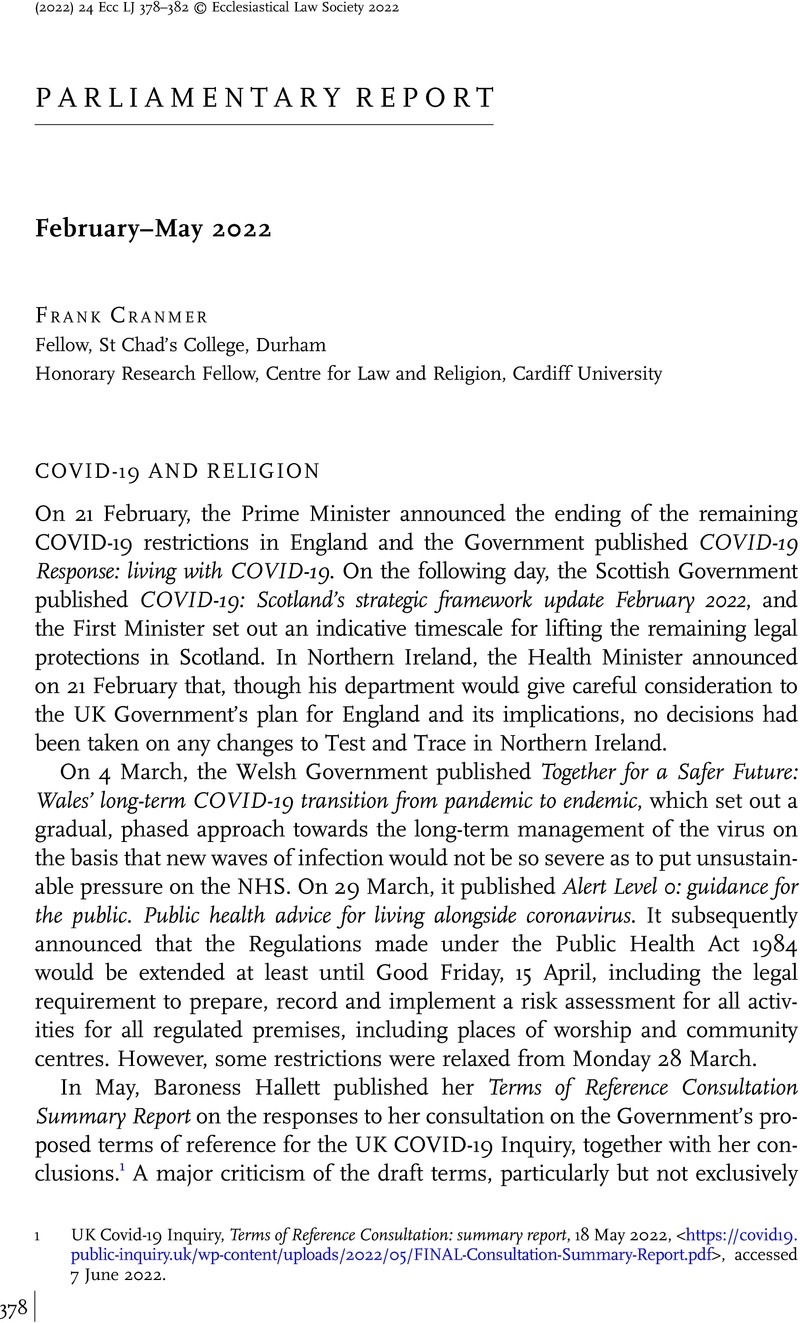Article contents
February–May 2022
Published online by Cambridge University Press: 12 September 2022
Abstract

- Type
- Parliamentary Report
- Information
- Copyright
- Copyright © Ecclesiastical Law Society 2022
References
1 UK Covid-19 Inquiry, Terms of Reference Consultation: summary report, 18 May 2022, <https://covid19.public-inquiry.uk/wp-content/uploads/2022/05/FINAL-Consultation-Summary-Report.pdf>, accessed 7 June 2022.
2 Ibid, p 19.
3 Ibid, p 18.
4 Cabinet Office, Findings of Second Permanent Secretary's Investigation into Alleged Gatherings on Government Premises during COVID Restrictions, 25 May 2022, para 6.
5 DCMS, ‘Charities Act 2022: implementation plan’, 13 April 2022, <https://www.gov.uk/guidance/charities-act-2022-implementation-plan>, accessed 18 July 2022.
6 McKee & Hughes v The Charity Commission for Northern Ireland [2020] NICA 13.
7 Available at <https://www.charitycommissionni.org.uk/charity-essentials/charities-act-update>, accessed 7 June 2022.
8 One of the issues in the recent consultation by the Department of Finance in Northern Ireland was a proposal to raise the current minimum age for marriage from 16, with parental consent, to 18. The consultation ended on 18 February, and at the time of writing the department had not published a response. So far as I am aware, there is no current proposal to amend the law in Scotland, where the minimum age for marriage or civil partnership is 16 and parental consent is not required.
- 1
- Cited by





